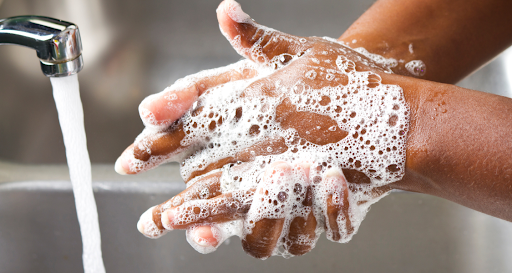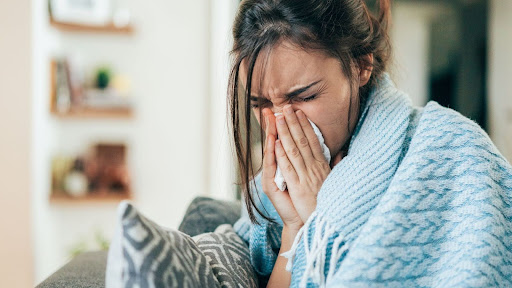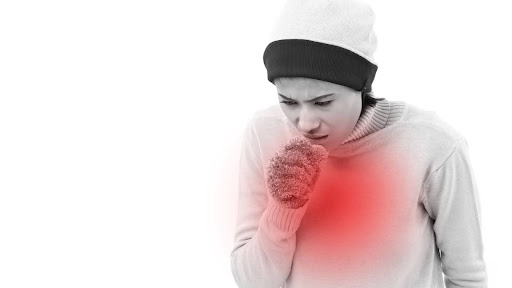A Guide To Critical Care And Infectious Diseases
5 min read
By DocGenie , Published on - 04 January 2021Critical care which is also known as intensive care is a distinct field of medical science. It focuses on the critically ill who are at risk of life-threatening or recovering from conditions that may be life-threatening. The domain of critical care includes life support, invasive monitoring techniques, resuscitation, as well as end-of-life care. Medical practitioners with skills in this specialty are called intensive care physicians or critical care physicians. Critical care includes multidisciplinary teams comprising diverse specially-trained health professionals giving 24-hour care. They use machines to constantly monitor the vital signs of patients.
The teams include doctors, nurses, physical therapists, respiratory therapists, pharmacists, et al. Such teams work collaboratively in intensive care units or ICUs of a hospital, which are dedicated hospital sections that deal with patients who have life-threatening injuries and illnesses and need constant monitoring. Doctors monitor these patients with the help of highly sophisticated types of equipment and tools, including ventilators that help patients breathe. Critically ill patients usually have problems with one or more vital organ/s.
What are infectious diseases?
Bacteria, viruses, fungi, or parasites are the four most common types of pathogens and primarily cause infectious diseases. It is important to know that a host of organisms live in and on our bodies. Though they are usually harmless and at times even helpful, under certain conditions, some of them may cause disease. Additionally, one person can pass many of these diseases to another.
Since 2020, the first name that appears to the mind when it comes to infectious disease is COVID-19 or Coronavirus. It is a respiratory infection that has affected over 225 million people worldwide. It is mild in most patients. However, the risk is high for the elderly or those with underlying conditions. The disease can also lead to life-threatening complications like pneumonia. People can reduce the risk of the infection by practicing safety measures like washing hands, maintaining six feet distance from others, restricting trips outside, and getting vaccinated.
Notably, a complete cure from COVID-19 is a long haul since many people continue to have a host of symptoms post recovery from the infection. These symptoms include cardiovascular, neurological, and autoimmune which last for weeks. This is why many with post-Covid conditions are looking for holistic care and planned post-Covid treatment. Many medical care organizations have now launched post-Covid treatment packages ensuring faster and complete recovery after COVID-19 infection.
At DocGenie we have launched monthly packages that offer continuous proactive care including consultation with an experienced doctor. The tests help the doctor understand patients better, including their lifestyle, heredity risks, etc, and bring in specialists if needed. The package on physiotherapy particularly helps patients regain strength post-Covid. Since weakness is one of the major issues with Covid, this package helps patients recover faster.
Also read: Monthly Health Packages Help Boost Post Covid-19 Recovery
Most commonly known infectious diseases
Bubonic and Pneumonic Plagues are the most infamous of all infectious diseases. This disease is behind the historic Black Death that ravaged through Asia, Europe, and Africa in the 14th century killing nearly 50 million. Two other notorious contagious or infectious diseases are Ebola and Bird Flu which often make headlines. However, there are many more infectious diseases that afflict us regularly. Here are eight such highly contagious diseases –
- Norovirus or Stomach Flu
- Influenza
- Meningitis
- Hand, Foot, and Mouth Disease (HFMD)
- Pertussis
- Sexually Transmitted Infections (STIs)
- MRSA
- Tuberculosis (TB)
Infectious diseases constitute a vital medical domain in the critical care unit setting. Also, critical care doctors have niche skills in dealing with infectious diseases. Community-acquired infection is a common condition that critically ill patients suffer from. The accurate diagnosis of the infection and appropriate treatments against the identified agents of infection are the major focuses of critical care medicine.
Critical Care also deals with nosocomial infections or healthcare-associated infections (HAI). These infections were absent when patients went to hospitals but they acquired them during the process of receiving health care. In most cases, these doctors are the initial providers of care to those seriously ill with infections. They make sure to prevent nosocomial infections. Moreover, they also try to minimize antimicrobial resistance by cautiously employing antibiotic agents.
Also read: What Kinds of Specialised Doctors Are Available on DocGenie?
The blog has been written incorporating inputs from Dr. Sana Abedin, a home visit doctor on DocGenie currently pursuing a fellowship course from the American College of Chest. Dr. Sana is a trained family physician who has worked in Artemis and Max Healthcare in the Delhi NCR area. She treats conditions likeCovid symptoms treatment, Lifestyle diseases like Blood Pressure and Diabetes, Respiratory infections, Diarrhoea, Mental health conditions, cardiac, neuro, respiratory, and post-surgery (general/ortho). Over the last year, she has seen more than 1000 Covid patients.
An MBBS from Nepal she has worked for Artemis hospital as a Medical Officer in Orthopaedic Department and as a junior resident in Critical Care for two years. Dr. Sana is also experienced in handling and closely monitoring liver transplant patients and advising diet modification. Earlier she has done home visits at Mohali and Dehradun and offers regular consultations, both virtually and in-person, at her clinic in Kanpur, Uttar Pradesh.
DocGenie is an online telemedicine platform that provides you with quality healthcare from the comfort of your own space. On DocGenie, you can book an online consultation with highly qualified doctors as well as book lab tests for home collection.
Author Details

Dr.Rachna Kucheria
MD (Community Medicine) AIIMS New Delhi
MD (Family Medicine) USC California
Obesity Medicine Certification The American Board of Obesity Medicine
30+ Years of experience


